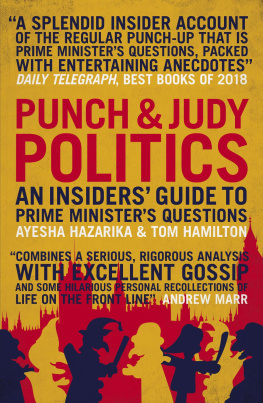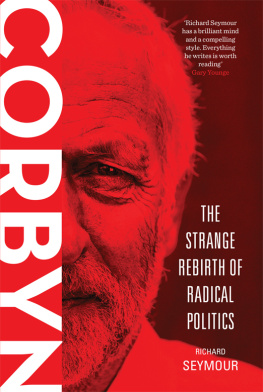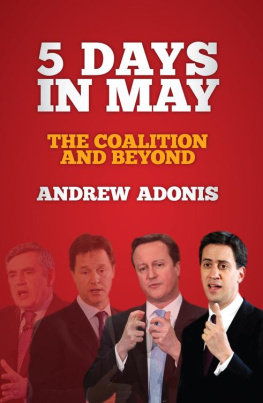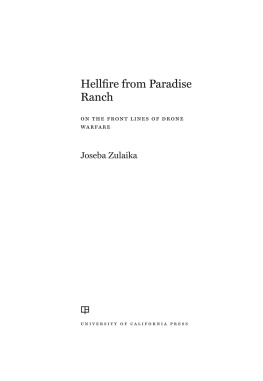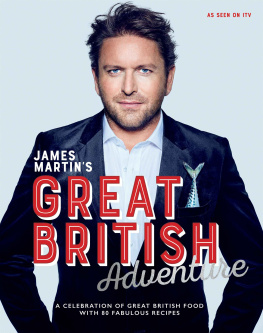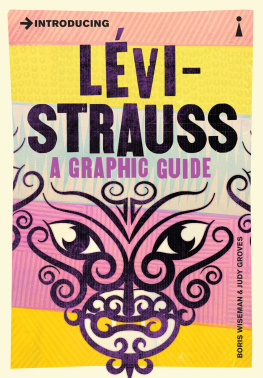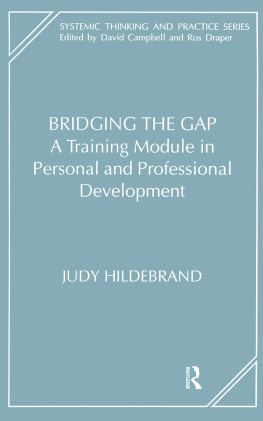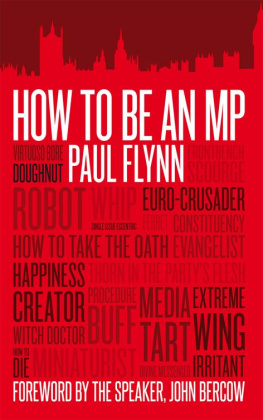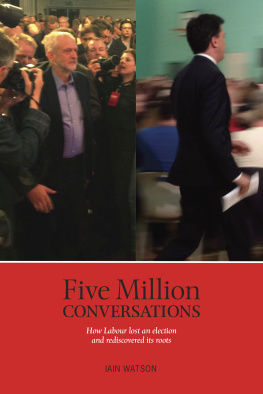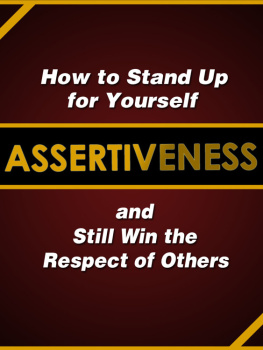A splendid insider account of the regular punch-up that is Prime Ministers Questions, packed with entertaining anecdotes.
DAILY TELEGRAPH, BEST BOOKS OF 2018
Westminster junkies would be happy if their stockings were filled with a copy of Tom Hamilton and Ayesha Hazarikas Punch & Judy Politics, a juicy insider account of what happens behind the scenes in prime ministers questions.
THE GUARDIAN, BEST BOOKS OF 2018
It really changed how I thought about PMQs. It illuminates not just that famous half hour of politics, but so much about why political parties make the decisions they do, and political strategy more generally. If you want to read one book to really get your head around how political parties work and plan, it would be Punch & Judy Politics.
STEPHEN BUSHS BEST POLITICS BOOKS OF 2018, FIVE BOOKS
All the fireworks and the fear of PMQs from two people whove seen it from the inside, with unique insights from PMQs survivors those whove done it and lived to tell the tale, from both sides of the Commons. This book captures both the importance and the quirkiness of the biggest event of the parliamentary week. Reading it sent shivers down my spine, taking me back to the thrill and terror that is PMQs.
HARRIET HARMAN
That rare thing: a genuinely informative, funny and original book on politics, which takes something you vaguely thought you knew all about Prime Ministers Questions and makes you look at it freshly. Hamilton and Hazarika combine a serious, rigorous analysis of tactics, strategies and outcomes across modern political history with excellent gossip and some hilarious personal recollections of life on the front line.
ANDREW MARR
Superb
JOHN RENTOUL
A fair, thorough and enjoyable study of the art and science of Prime Ministers Questions. For those of us who have been participants, it brings back memories of dramatic moments we lived through; for observers, it reveals the techniques and tensions behind the duelling of political leaders. Well worth reading by anyone who wants to understand the workings of parliamentary democracy.
WILLIAM HAGUE
First-rate A remarkably shrewd, well-argued and plausible assessment of what works and doesnt work at this key encounter.
ANDREW SPARROW, THE GUARDIAN
An invaluable study by Ayesha Hazarika and Tom Hamilton of the Wednesday PM quizzing tells of arrogance, fear and astonishing preparation.
EMILY THORNBERRY MP, SHADOW FOREIGN SECRETARY
One of the best books on politics to be published this year!
TOTAL POLITICS
A joy For those wanting an insight into how politics works behind the scenes, Hazarika and Hamilton definitely oblige.
PROGRESS MAGAZINE
Its a zippy, insightful read, helped immeasurably by contributions from the likes of David Cameron, Tony Blair, William Hague and Ed Miliband, the former Labour leader with whom both Hamilton and Hazarika worked during the coalition years. Hamilton and Hazarika make a good case for the enduring importance of PMQs in keeping the Government (relatively) honest.
CAPX
T his book could not have been written without Ed Miliband and Harriet Harman, who gave both of us roles behind the scenes preparing for PMQs and learning its secrets. Its a huge privilege to have had this unique and very special experience. If wed been better at our jobs, we might still be helping them prepare for PMQs even now, in government the non-existence of this book would be one of the least notable features of that alternative political timeline. The book would also not exist without Iain Dale, Olivia Beattie and the rest of the team at Biteback Publishing, who saw the projects potential and stuck with it, and us, through a series of missed deadlines, stand-up tours and an unexpected general election.
We are still astonished at how many leading figures, including several who were on the opposite side to us during our time working on PMQs, generously agreed to give us their time and their insights: former Prime Ministers and Leaders of the Opposition who have taken part in the leaders joust; MPs who have asked questions, heckled from the back benches or even stood in for their leaders; advisers who have helped prepare both sides; journalists who have watched from the press gallery and given their instant verdicts; and the Speaker of the House of Commons, who runs the whole show. Several of the people we spoke to for this book have performed more than one of these roles at different stages of their careers; perhaps some will go on to perform more of them in future.
Our thanks go to John Bercow, Gabby Bertin, Theo Bertram, Tony Blair, Kevin Brennan, Vince Cable, David Cameron, Alastair Campbell, Jo Coburn, John Crace, Angela Eagle, Danny Finkelstein, Miranda Green, Bruce Grocott, William Hague, Harriet Harman, Paddy Hennessy, Rob Hutton, Sean Kemp, Neil Kinnock, Ian Lavery, Alison McGovern, Ed Miliband, Joe Murphy, George Osborne, Bob Roberts, Tim Shipman, Dennis Skinner, Anna Soubry, Ann Treneman and John Whittingdale. Were grateful to all of them, and to their staff members who helped arrange interviews, as well as to the current and former politicians and advisers who spoke to us on condition of anonymity: they know who they are, and they know how grateful we are. Throughout the book, for ease of reference it should be assumed that unless otherwise attributed all quotations, including anonymous quotations, are taken from our interviews.
We are grateful, too, to those who kindly agreed to read the manuscript at different points in its gestation. Sarah Coombes, James Hamilton, Rob Hutton, Catherine MacLeod, Dominic Murphy (a former custodian of the David Cameron quotes catalogue, as well as regular compiler of the bucket of shit see Chapter 3), James Robinson, Jonathan Simons and Josh Simons read drafts of some or all of the book and made invaluable comments. Any errors that remain are, of course, entirely our responsibility.
Ayesha Hazarika would like to thank Iain Dale for being such a good friend since she left politics (even though hes wrong on most things) and Tom for being a great person to work with. Again!
Tom Hamilton would like to thank Sarah Hamilton, for her constant love, support and encouragement in this project as in everything, as well as for her constructive comments on the manuscript; and William, who made no constructive comments at all, on any of it.
I ts Wednesday morning. Youre the Leader of the Opposition. Its your job to choose one of this weeks top political news stories and write six questions to the Prime Minister about it. Not exam questions, not questions that you might ask an expert, but awkward, hostile questions that will put the Prime Minister on the back foot, make her embarrassed and defensive and make you look good. If she can answer them easily, then theyre not good questions. If you dont know the answers yourself, then theyre almost certainly terrible questions, unless youre absolutely certain that she doesnt know the answers either.
Six different questions. Six interesting questions. Six difficult questions. Think about the relationship between them, so that each one flows logically from the previous one. What does the answer to the first question tell you, and what should you ask next? What is the cumulative effect of the correct answers? Keep them tight: a forensic approach is almost certainly more effective than non-specific bluster. Do some proper research: if your questions turn out to contain factual errors then you will look ridiculous.
Now, look at the questions again. What are they leading up to? It has to be more than just a demonstration that the Prime Minister doesnt know as much as she ought to about the thing youre asking about. Try to make a bigger political argument at the same time: the government is incompetent, the governments whole ideological approach is wrong, the Prime Minister is out of touch, the Prime Minister is a bad person, the minister responsible for the area youre asking about should resign, whatever you like. Make each question support the argument. You can build the argument a sentence or two at a time, but you need to keep coming back to a question. Keep each one brief.

